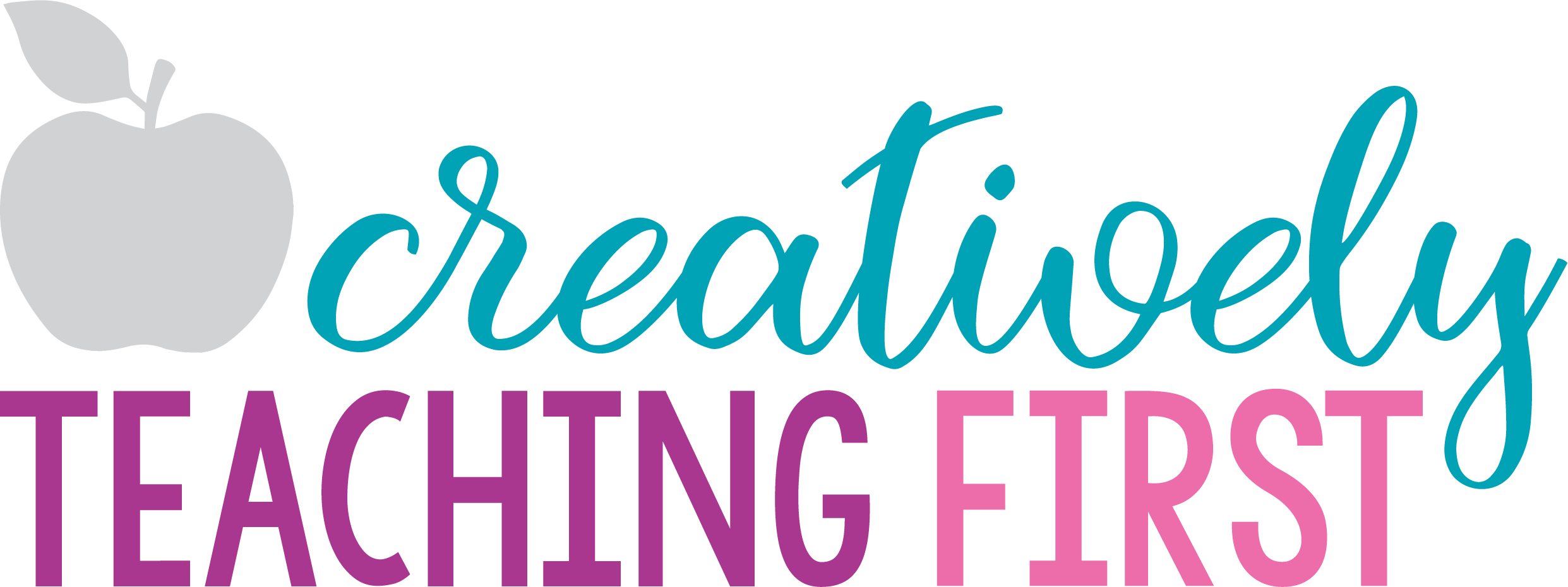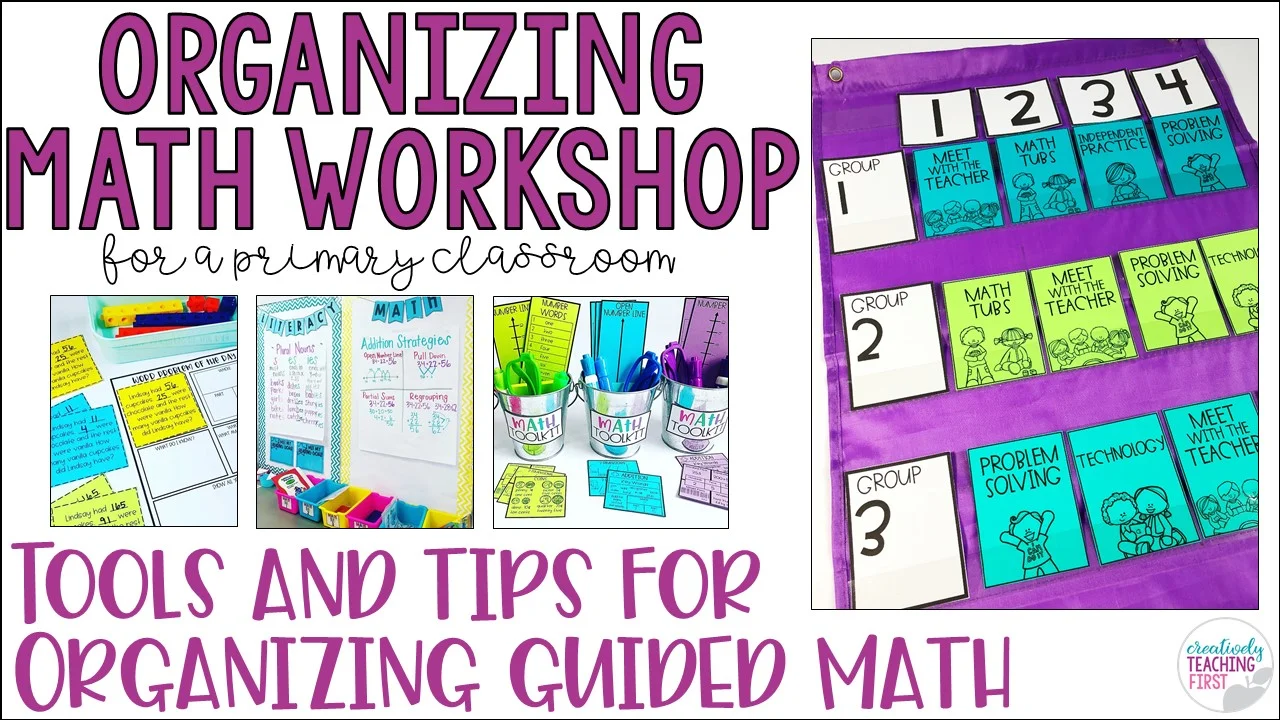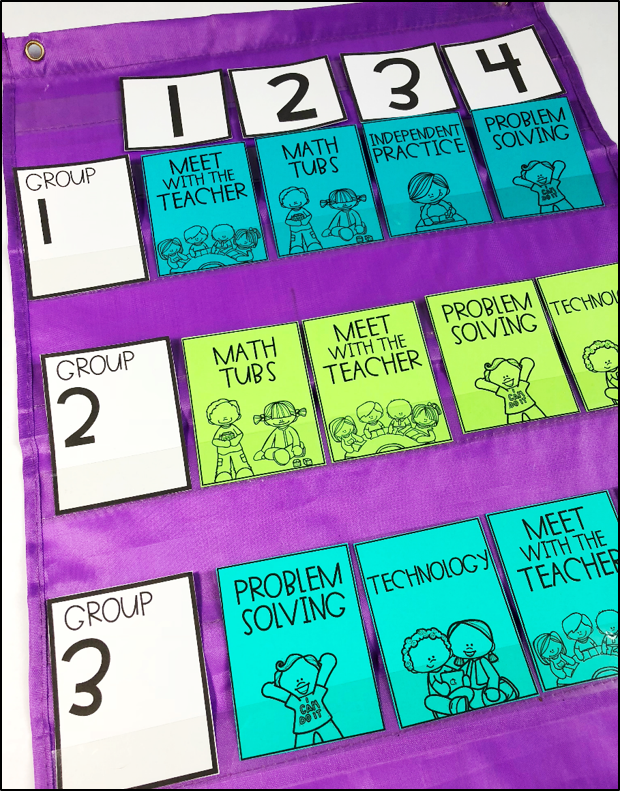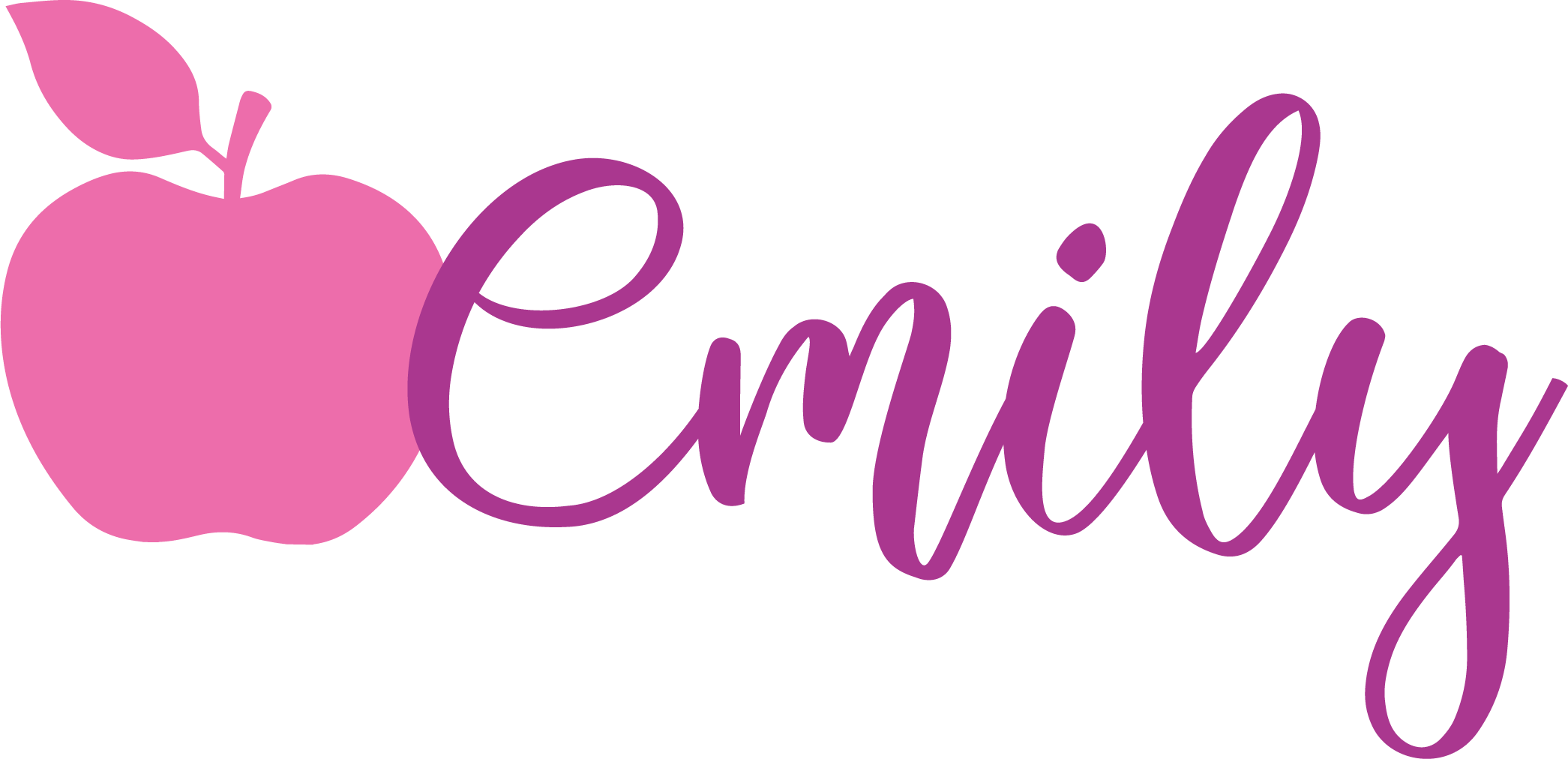Guided Math Workshop
Setting up and organizing guided math workshop sounds like it can be a challenging task! I think setting high expectations for your students and being consistent are two important factors for a successful math workshop. Today I want to share some of my favorite go-to tips and tricks for organizing guided math workshop!
#1 Establish Expectations
Teach, model, practice, repeat. Does this sound familiar? I always tell myself if I think we have practiced enough, we should do it one more time. Guided math workshop is not something to rush into. We spend weeks going over and practicing expectations.
We spend the first few days making anchor carts about what guided math workshop should and should not look like and sound like. We practice and practice AND practice rotating through our math stations.
We also spend a few days playing with our math manipulatives that we will use during guided math workshop. I like to do this because it allows students time to explore, build, and play with the manipulatives while I establish expectations. This also gets my students excited about math! I have high expectations for students to use math manipulaitves for MATH during math workshop. We refer to these manipulatives as math TOOLS. I love having students complete a booklet while they are exploring and playing. The booklet can be found HERE.
#2 Set a Time Frame
One of the first things I like to think about is how much time I have to work with. Our daily schedule allows 65 minutes for math and I automatically subtract 5 minutes for transitions.
I will go into more detail soon, but here is the quick breakdown:
10 minutes - Whole Group Mini Lesson
40 minutes - 4 rotations for 10 minutes each
10 minutes - Quick Check/Wrap Up
#3 Establish a Routine
Kids THRIVE on routine. I keep our math workshop routine the same every day. The only exception would be if we are taking a pretest or a post test, but even sometimes then I might have students take the test with me during their small group. I keep the rotations the same, the activities similar, and my expectations stay high. Yes, I do have high expectations. Math workshop is a critical part of our day. Set your expectations high, stick with it, and I promise your students will respond. The only thing that does change throughout the year are the groups of students. I switch groups based on my students needs and it can change for every skill. For example, some students may be great at adding, but struggle with subtraction or telling time.
Whole Group
We begin math workshop as a whole group for 10 minutes. Whole group usually takes place on the carpet in our meeting area, but sometimes it takes place at their seats in order to see the large board. This is the time we have our mini lesson. We create anchor charts, review math vocabulary, and complete practice problems as a class. As soon as our mini lesson is over I send my students to their first round of rotations.
Create a space for your math workshop charts and tubs!
Math Rotations and Stations
This is where we spend the majority of our guided math workshop. We have four 10 minutes rotations. I split my students into four groups based on a pretest. The students rotate through all four stations each day. We use the guided math rotation board below. The guided math rotation board can be found HERE. I never change the order of rotations. The only thing I change is the name on the group cards. The cards are laminated, so I can quickly write and erase student names with a dry erase marker.
Now, lets talk about the math workshop stations! The four stations my students rotate through are problem solving, math tubs, technology, and meet with the teacher.
Problem Solving - My students work on a differentiated math word problem each day. I never realized how important it is to expose children to different word problem types until I attended a math PD that discussed this! My students each have their own word problem journal and they glue the word problem into their journal. All students have the same word problem, but with different numbers to differentiate. The word problems and journal can be found HERE.
I love using problem solving bookmarks to help my students. Over the years I have fallen in love with the UPS Check strategy. It takes away the idea of looking for ‘key words’. Did you know sometimes word problems don’t have those key words? I didn’t know this until I sat through a math training. I like the UPS Check strategy because I feel it teaches students to look at the problem as a whole, rather than focusing on those key words. However, BOTH strategies work and I know teachers that have great success with both! The problem solving bookmarks can be found HERE.
Math Tubs - These are hands on activities/centers they do to review and reinforce math skills. I don’t have specific centers I use. I use a variety of games and activities I can find from our school’s resource room, something I create or buy, or from Teachers Pay Teachers. I place each center in a tub. The tubs are numbered 1-6. Students are assigned a tub number for that day. Each day I rotate the tub number they go to. Once the students have completed each tub, I swap out the activities for new ones. I place the tubs on the counter below our anchor charts.
Technology - I am very thankful for a school district that has 1:1 iPads in grades K-2. For the technology station, we use one of the apps on the iPad or our curriculum website. I simply write an app and assignment on the board and the students know to get on that specific one. Nothing too fancy here. :)
Meet with the Teacher - Every day I meet with all my students. We review and practice the mini lesson we discussed as a class. This is where I provide differentiated instruction based on the mini lesson. I provide my groups with different strategies, manipulatives, and activities based on their level and readiness. Each student that works with me has a little math toolkit where all the supplies they need for the activity is held. I only created 7 toolkits, so the students who work with me have one. Having everything for a student in one place takes a little bit of preparation time, but it HELPS SO MUCH! The toolkits that we use can be found HERE.
Quick Check or Exit Ticket
Last, but certainly not least, we complete a quick check or exit ticket. After our four rotations, I send all my students back to their seat to complete a quick check or exit ticket. This quick check can be an “official” quick check or a spur of the moment one to complete on their dry erase boards or on sticky notes. I want to see if my students retained what we learned that day and how they feel about it. I might ask a question or put a problem on the board for the students to answer. We may not do this every single day. It just depends on our focus for the day. I have used a couple different quick checks and self assessment tools before and today I am going to share my three favorites!
Math Goal Journals - Students glue the math goal into their journal and then they self assess their understanding and “show what they know” by providing an example or answering a problem.
PLEASE NOTE: The picture below shows reading goals, but the math goals are set up EXACTLY like the reading ones, except the students glue a math goal instead of a reading goal. :)
Common Core Quick Checks - I used these quick checks while teaching second grade. There are three quick checks per standard. These are great to use if you are teaching second grade! The quick checks can be found HERE.
Levels of Understanding - I have used these posters and key rings for a quick way to assess student understanding. I hang the posters on a wall or board and hang a clear pocket under each poster. Students use the clear pockets to place their quick check or exit ticket in the corresponding level of understanding. The key rings are perfect to put on student desks or your small group table.
I hope you found some helpful tips to get your guided math workshop up and running! If you have any more questions about anything I shared today, please don’t hesitate to reach out!
Happy Teaching!















